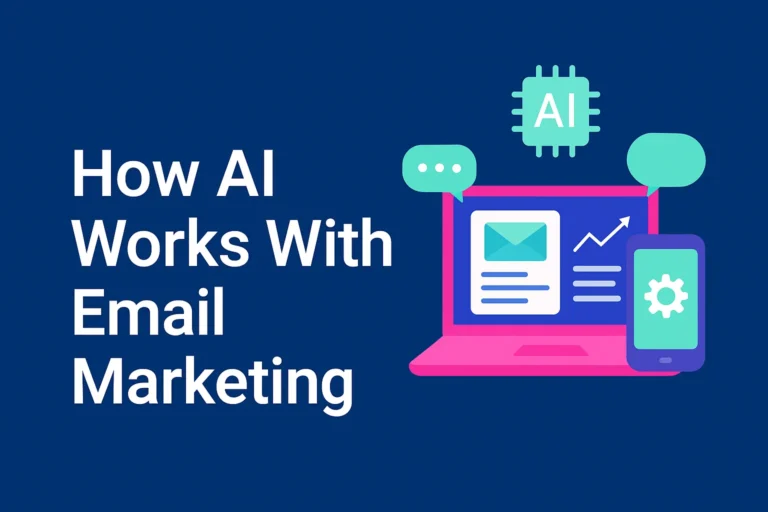The Rise of AI and Snooping Tech in the Automotive Industry…
In recent years, the automotive industry has been relentlessly transforming from a reliance on mechanical engineering to one where digital technology, including Artificial Intelligence (AI), plays a pivotal role. Automakers across the globe are increasingly focusing on tech integration, especially on Electric Vehicles (EVs), with touch screens, connectivity, battery packs and now AI becoming as integral to vehicles as the engine itself. This promises much, in terms of AI’s ability to revolutionise the driving experience, making cars not just a mode of transport but an intuitive extension of our increasingly digital lives. However, there must be a stark warning about the potential risks of how surveillance tech combined with AI could be used against the interests of the consumer, specifically concerning their data privacy, human rights and freedom of movement.

AI in Modern Vehicles Can Enhance Safety and Efficiency
AI’s application in cars today spans from autonomous driving systems to personalised in-car experiences. Here’s how AI is being used:
- Autonomous Driving
AI algorithms are at the core of self-driving technologies, enabling vehicles to perceive their environment, make driving decisions, and, in some cases, execute them. This technology aims to reduce human error in driving, although most drivers find it alarming when a car attempts to intervene midway through a manoeuvre. Many driver aid systems appear to increase the risk of initiating an accident rather than avoiding one. Frankly, unless a car is fully autonomous, such nannying systems are not something most drivers appreciate and regularly turn them off.
- Predictive Maintenance
Cars equipped with AI can predict when parts might fail or need maintenance by analysing data from sensors. This not only intends to extend the life of the vehicle but also reduces the cost and inconvenience of unexpected repairs, although in most cases, sensors already do this, so it is unclear what real additional benefit the application of AI provides here.
- Enhanced Navigation/Traffic Management
AI can help with real-time traffic analysis, suggesting the fastest routes based on current conditions, predicting traffic jams and even optimising fuel efficiency by adjusting speed and gear shifts. This could be at the expense of recording every journey and location of the user.
From adjusting seat positions to setting preferred music or climate control, AI learns from the driver’s habits, making each journey more comfortable and tailored. Again, most cars have some basic memory functions that do this already. We must ask the question of whether technology is becoming too invasive in our daily lives.
Affordability and Integration
While there may be some tangible benefits, the challenge lies in making these technologies accessible and cost effective. Consumers demand vehicles that are affordable, reliable and cheap to maintain, while any advanced technology must integrate seamlessly into their lives. The current crop of products from long-established brands in Western countries are now significantly more expensive than ever, especially electric vehicles. This is sparking a kickback in many markets, where people are holding on to their older cars for longer, as trading up is very expensive.
Car manufacturers are trying to better integrate new tech into the user experience in the following ways:
- Cost-Effective Innovation
Automakers are striving to lower the cost of AI integration, ensuring that even budget models can offer some level of smart technology, thereby democratising access to these advancements. However, some of these features add more complexity and cost to models that would otherwise be more affordable. It seems that manufacturers are not listening to their customers and simply using new tech as an excuse to inflate prices.
- User-Friendly Interfaces
There is a focus on making digital systems intuitive, reducing the learning curve for new car owners. Touchscreens and voice commands were intended to simplify interaction, although most of them appear to add more layers of complexity and distraction away from driving. With fewer real buttons and all control functions now interfaced on a touchscreen, it becomes almost impossible to change any settings, such as a radio station, while keeping your eyes on the road. New tech is often not well integrated with the user experience, making driving more hazardous. Learning how to integrate advanced tech and AI so it feels like an enhancement rather than an unnecessary complication is something where many manufacturers are failing miserably and must do much better in the future. Some car makers are slowly waking up to the fact they must now reintroduce buttons for simple functions like climate and radio controls.
Is Your Personal Data and Vehicle Telemetry Safe?
Every modern vehicle generates vast amounts of data through its sensors and connectivity features. Opening the digital floodgates is a massive change that society and manufacturers may simply not be ready for, and consumers were never asked to agree to in the first place. Unfortunately, it could already be too late to even attempt to squeeze this genie back into the bottle.
Here are some of the issues we all need to be mindful of:
- Data Storage and Privacy
Your data, including vehicle telemetry and driving habits, location and personal settings, is typically collected by your car and stored by the automaker in cloud services. Concerns arise regarding why customers are unaware their data is being collected, who has access to this data and what they are doing with it? While manufacturers claim to use it for improving service and safety, the potential for misuse is real. Just look at the recent data breach by Volkswagen, hardly mentioned by mainstream media. In this case, personal information, along with every bit of vehicle telemetry from every journey of every EV customer, was stored on an unsecured Amazon Web Server that anyone with an internet connection could access. This is a stark reminder of the privacy risks we are now being faced with.
- Government Access and Surveillance
With governments showing increasing interest in public data for various reasons, from urban planning to law enforcement, there’s a fear that vehicle data could be the next infringement on our human rights and used to monitor or even restrict movement. The concept of ‘carbon credits’ combined with mobility restrictions based on environmental impact, could threaten the personal freedoms of everyone on the planet.
AI and Citizen Control
Looking towards 2050, things could be dramatically different, with EVs being weaponised as surveillance tools:
- Total Monitoring
EVs, with their digital nature, are fully capable of continuous monitoring of individual movements. This could lead to a scenario where every aspect of your journey is tracked, potentially used to enforce restrictions on where, when and how far a person can travel.
- Over-the-Air Updates and Control
EV manufacturers already regularly apply remote updates to vehicle software, theoretically to improve functionality, but what if these updates could also limit vehicle performance or access to certain streets or districts?
- Balancing Freedom and Regulation
The threat to human rights, particularly freedom of movement, becomes significant if this data is used to measure individual carbon emissions or enforce mobility laws. The idea of a joyous Sunday drive in the countryside could become regulated or even extinct if personal carbon allowances become the norm.
Did You Give Permission?
If you drive a relatively new car, less than five years old, the automaker already has the capability and may be recording every move you make. It’s unlikely that at the point of sale you were ever asked to sign away all your data sovereignty to the vehicle manufacturer, but that is in effect exactly what you did. Whether you realise it or not, these underhanded tactics are being executed daily, meaning our personal data is being collected against our knowledge and therefore against our will. Whilst technology can be used to enhance our lives, like using AI to make driving safer, more efficient and integrated with our digital ecosystems, it can just as easily be used against us. Sadly, the reality is that consumers must remain extra vigilant when it comes to data privacy.
A Call to Consumers
Understanding the implications of data privacy, advocating for transparent data practices and ensuring legislation that protects personal freedoms is properly respected are now critical considerations. By 2050, we could either be living in a world where technology is a liberating force or a tool for surveillance and lockdown levels of control. It’s imperative that as we embrace advancements, willingly or otherwise, we must also champion the ethical application of technology, ensuring that the road ahead always leads to freedom rather than restriction. Let’s drive into the future with our eyes wide open, appreciating the benefits of new tech like AI, while safeguarding our rights and privacy. There won’t be any second chances, once we sign away our personal freedoms, it will be very difficult to claw them back.
You may want to read: “Is AI a Force for Good or Surveillance and Control?”






